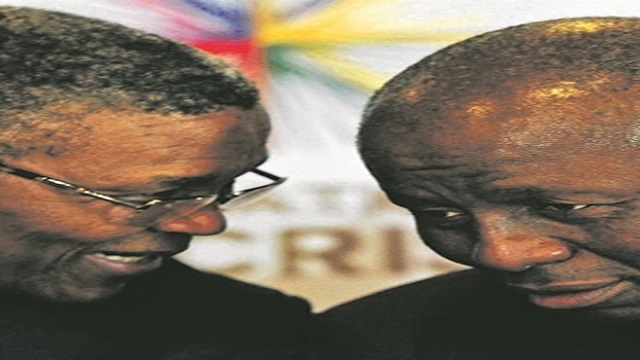
Johannesburg - The newly formed National Education Crisis Forum is planning to host a national convention involving all interested parties next month to discuss the country’s higher education funding conundrum.
Dikgang Moseneke, former deputy chief justice, who is one of the nine conveners of the forum launched on Thursday at the Nelson Mandela Foundation in Johannesburg, said they hoped to bring together education stakeholders – including civil society groups, businesses, students, parents, government officials and university staff – at the convention.
The convention will seek to make proposals meant to overhaul the funding of the higher education sector pending the outcome of the commission of inquiry into higher education and training (the fees commission).
He said government’s decision to approve a maximum university fee increase of 8% this year would be among the key issues to be discussed by various stakeholders.
Moseneke said financial exclusion related to historic debt remained an unresolved challenge to the registration process this year and that students did not guarantee that violence would not flare up again this year.
Legal constraints
“The forum made an effort to engage with government on the conversion of the 8% fee increase into an 8% increase in government subsidy.
"To date, this proposed approach or other related approaches have not been introduced to address this potential threat to stability in the academic year,” Moseneke said.
“Proposals on government underwriting of historic debt have not yet been taken up. At various universities, students who are not allocated National Student Financial Aid Scheme (NSFAS) funding are currently unable to register for the 2017 academic year on account of historic debt.”
Moseneke said the forum had taken note of challenging financial and legal constraints that confront the leadership of universities during engagements with university vice-chancellors and council chairpersons.
There were other models of funding that needed to be considered as an alternative to NSFAS because the funding scheme in its current form was not working.
“Universities are implementing a range of measures that do not eliminate historic debt as an obstacle to registration,” Moseneke said.
NSFAS was scheduled to release the final funding allocations this week.
However, the information was not available when City Press approached the scheme and NSFAS chairperson Sizwe Nxasana was also not available.
Inclusive process
Moseneke said the outcome of the national convention would be submitted to the ANC for consideration at its upcoming policy conference this year.
Asked whether the forum would make a submission to the fees commission, Bishop Malusi Mpumlwana said there had not been a decision on the matter yet, but any proposals made in the convention could be used by the commission of inquiry in its report set to be released in June.
He said experts in the forum decided to come together in the meantime because there were issues that needed to be resolved at universities, including the threat of violence.
The forum, through the SA Council of Churches and the Higher Education Parents’ Dialogue, had interacted with Minister in the Presidency Jeff Radebe last year before it was officially launched.
It had pushed for the inclusion of Finance Minister Pravin Gordhan in the interministerial task team led by Radebe after it learnt that Gordhan had been left out, despite their plea that Treasury be included.
He said Gordhan was subsequently included.
Musa Ndwandwe, spokesperson of the fees commission, said the forum would be welcomed to make a submission to the commission.
“The commission is an inclusive process and if they were to approach the commission, there will be a consideration for them to be heard.”
Ndwandwe said Gordhan was scheduled to make a presentation to the commission after the budget speech on March 5.
Lack of food
“There are people in government who believe all of this is simply an effort to unseat government. They don’t think there is a genuine education crisis. They need to be persuaded,” Mpumlwana said.
He also criticised the manner in which government handled the #FeesMustFall protests by deploying police and the army.
He also believed that it was wrong for the courts to deny bail to University of KwaZulu-Natal #FeesMustFall leader, Bonginkosi Khanyile.
The forum also hoped to tackle the current lack of food for students on campuses.
In the meantime, universities and student leaders have announced their innovative in-house initiatives to source funding for needy students.
